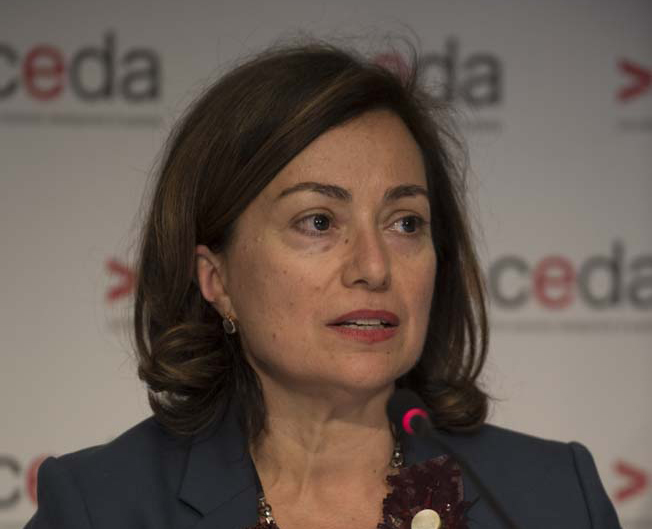PROGRESS 2050: Toward a prosperous future for all Australians
09/10/2016

QIC Deputy Head of Global Infrastructure, Matina Papathanasiou said that community engagement needed to be a priority for infrastructure investors.
“I think that’s got to be more of a focus for infrastructure investors. At the end of the day, it’s all about a service you’re providing, so you’ve got to make sure the customers want it – particularly when we’re looking at priority lists, etcetera,” Ms Papathanasiou said.
“I think it’s important to say, ‘What are the top projects that the community would actually like to see’.
“Firstly, with technology, customers now have more choice.
“That’s increasingly going to be the case in the infrastructure sector, and so there is quite an onus on higher standards.
“Another thing, I think asset recycling has been a success, and it’s important that we continue to have the social licence from the community to engage in asset recycling. Particularly for assets that are high profile, we need to continue to have an open and transparent process around how those assets are sold.”
AustralianSuper Deputy Chief Executive and Chief Investment Officer, Mark Delaney also spoke about asset recycling.
“A lot of these assets were previously owned by the taxpayers and the public. They see them as their assets. And, as anybody would be, they’re quite protective of them and what happens to them. They don’t want to see their assets sold away to fund frivolous policies or the like,” Mr Delaney said.
“It’s important that if the assets are sold that the money is really well used, so that (the public) can see the value in selling assets – they’re getting something better in return.”
Mr Delaney also said it was important that owners of recycled assets did not take advantage of the people who used them – otherwise the licence to operate would disappear.
“So we like to think of some of these assets as being almost like social privatisation, whereby they’re formerly owned by the government and now – AustralianSuper has two million members – they’re owned by two million people,” Mr Delaney said.
“The same people, in effect, are owning the asset. Just through a different form.”
Infrastructure Australia CEO, Philip Davies said that providing information to the community about how existing assets were being utilised was important.
“I think the one part of the jigsaw, which was touched on earlier, was around better use. And I think again we made a comment when we published our audit in May of last year, that we’ve probably got most of the infrastructure that we need – now it’s mostly about how we use it,” Mr Davies said.
“Certainly, we’re seeing a far greater focus now on getting better use out of existing infrastructure, and seeing some investments coming through for that – which hasn’t been so prominent previously.
“That in itself is a good thing. I think that sends a strong message to the community, including the business community, that we’re not just continuing to build, build, build – which obviously we still need to do – but we’re also focusing on making better use of what we’ve already got.
“And I think the last thing… Fundamentally all this infrastructure is supporting services, and we’ve got to keep our eye on that. That is, supplying customers with what they want.”
Watch State of the Nation 2016 videos.
